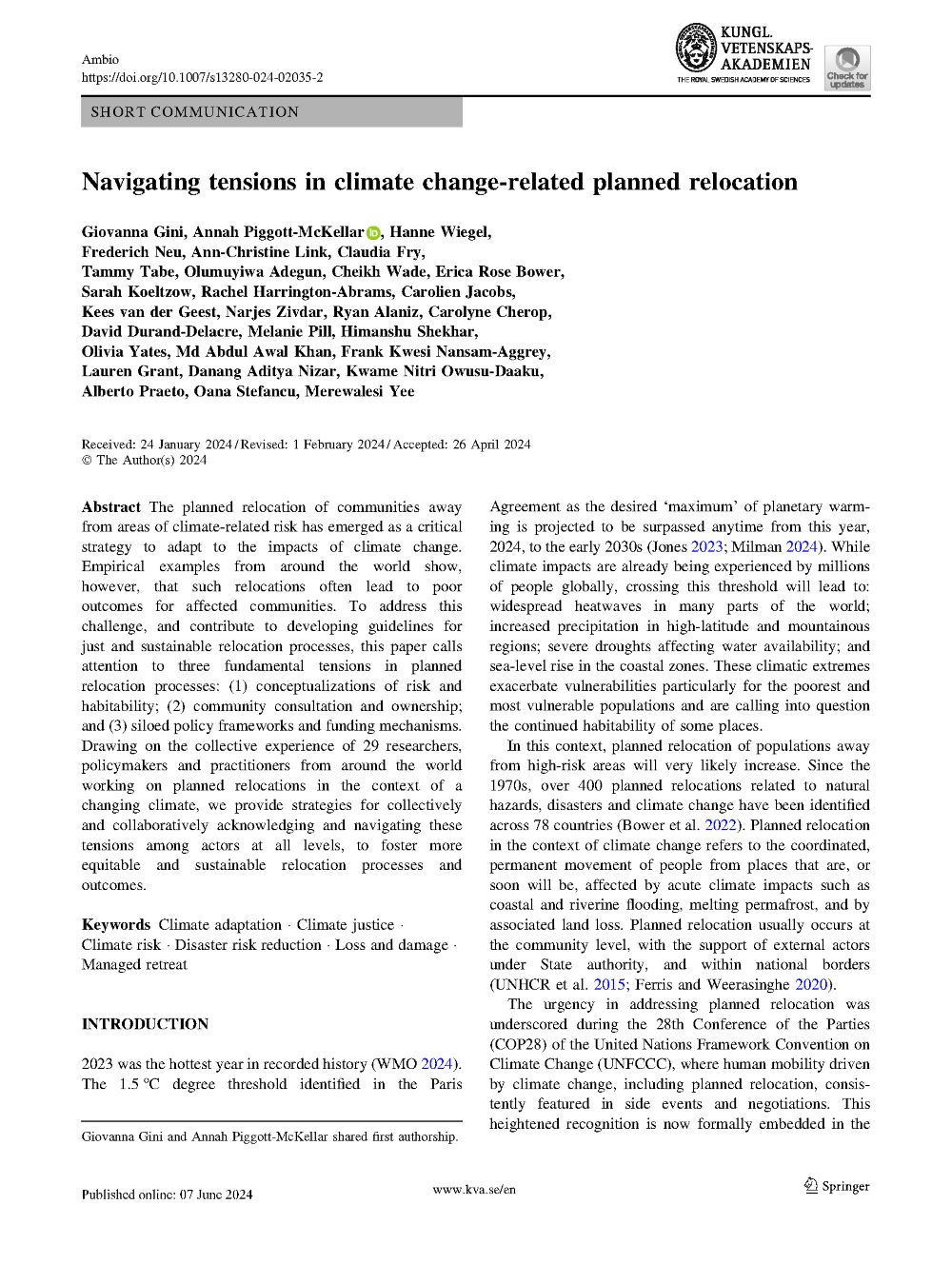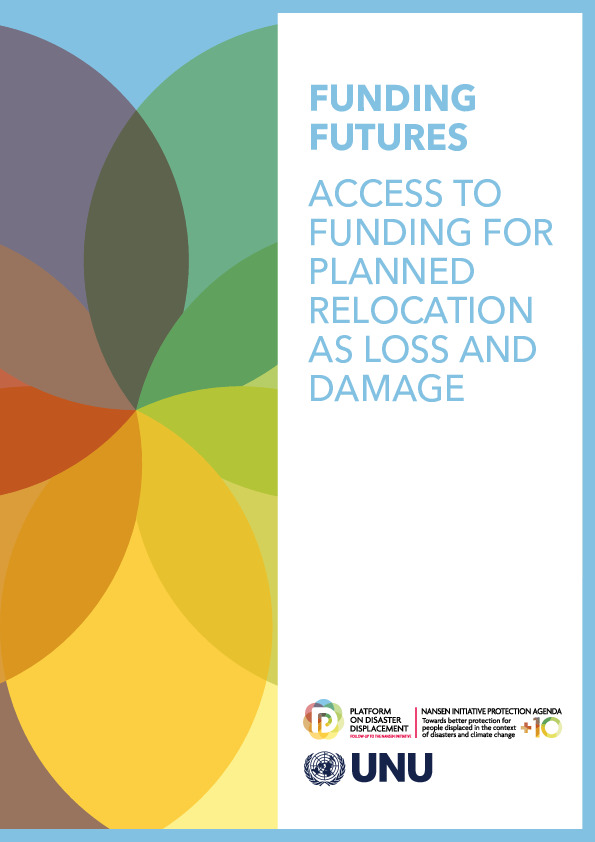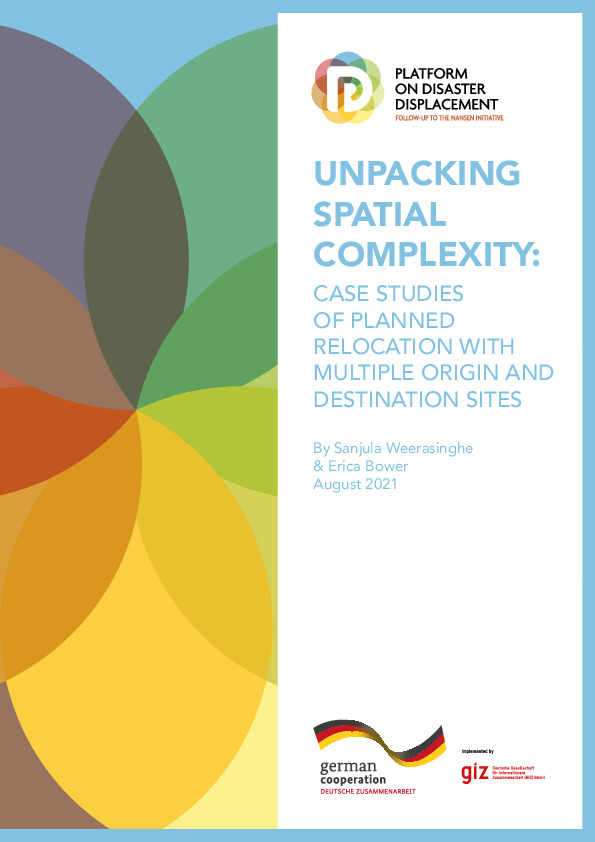The planned relocation of communities away from areas of climate-related risk has emerged as a critical strategy to adapt to the impacts of climate change. Empirical examples from around the world show, however, that such relocations often lead to poor outcomes for affected communities. To address this challenge, and contribute to developing guidelines for just and sustainable relocation processes, this paper calls attention to three fundamental tensions in planned relocation processes: (1) conceptualizations of risk and habitability; (2) community consultation and ownership; and (3) siloed policy frameworks and funding mechanisms. Drawing on the collective experience of 29 researchers, policymakers and practitioners from around the world working on planned relocations in the context of a changing climate, we provide strategies for collectively and collaboratively acknowledging and navigating these tensions among actors at all levels, to foster more equitable and sustainable relocation processes and outcomes.
Article – Navigating Tensions in Climate Change-Related Planned Relocation
Giovanna Gini, Annah Piggott-McKellar, Hanne Wiegel, Frederich Neu, Ann-Christine Link, Claudia Fry, Tammy Tabe, Olumuyiwa Adegun, Cheikh Wade, Erica Rose Bower, Sarah Koeltzow, Rachel Harrington-Abrams, Carolien Jacobs, Kees van der Geest, Narjes Zivdar, Ryan Alaniz, Carolyne Cherop, David Durand-Delacre, Melanie Pill, Himanshu Shekhar, Olivia Yates, Md Abdul Awal Khan, Frank Kwesi Nansam-Aggrey, Lauren Grant, Danang Aditya Nizar, Kwame Nitri Owusu-Daaku, Alberto Praeto, Oana Stefancu, Merewalesi YeeI (2024)










